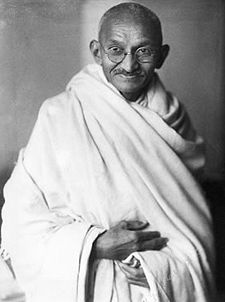October 2008
In this issue:
1. Readers’ Comments
2. Newsbits
3. October Editorial: “Position Heal Thyself”
4. Preview: Next Month’s Editorial
5. Quote of the Month – William H. Murray
6. Hot Link of the Month
7. Want to Blog?
8. Click and Play of the Month
1. READERS’ COMMENTS
Thanks to Debby Edelstein in South Africa, Jeff Young, Wendy Wallbridge, Luann Linquist, Ric Giardina and Dan Weigold in the U.S. for your warm responses to last month’s intender editorial. And from Australia, Rob Rabbin sends this tongue-in-cheek response to the question of who is the intender:
…..As someone who has delved into these matters for 40 years, and as someone who is widely acclaimed as a self-realized being, I would like to offer two possible answers (though I surmise your question is rhetorical):
1. Santa Claus
2. The Easter Bunny
However, should neither of these considered answers fill your heart with gladness, may I refer to something brother Rumi said years ago: However you think it is, it’s different than that.
With all good intentions, I am
Robert Rabbin
2. NEWSBITS
October Blog on “Wall Street Casinos: Ending the Anarchy of Speculation”
Given the events of the past weeks in financial markets, I am postponing the planned post which will run later after the shock, pain and suffering from this meltdown has a chance to assimilate. Please check it out and post your comments
Late September Special Blog Post
I had to comment on the financial debacle of recent weeks so I posted a short piece which shows up as a second September entry. Many of us have seen this coming for years and the worst may not be over but it is painfully obvious (as even The Wall Street Journal and The Financial Times indicated) that U.S.-style capitalism needs a makeover.
Volunteers Wanted for My Preview Team
Almost all my articles, monthly editorials and blogs are previewed by a team of ten to twelve volunteers who look them over and offer comments on a time-available basis. Some make general suggestions, some detailed critiques and edits, some simply proofread. At any one time perhaps a third of the team provides me with valuable feedback so they contribute when they can. A number of people recently left the team due to other priorities so if you would like to join this team of volunteer angels, drop me an email at john@renesch.com. There’s no pay but you’ll receive lots of gratitude!
3. OCTOBER EDITORIAL
What is the most popular personal commitment, not gauged by what people tell you but observed from their actions and behaviors? Parenting children? Personal relationships, like with a spouse or partner? Excelling in a personal endeavor such as a sport or a business?
While all these are fine examples of popular commitments in today’s world, I would like to suggest something you probably weren’t thinking about: People are more committed to their thoughts and opinions than anything or anyone else. People have been known to die rather than give up their ideas about how things should be, or even how things are from their perspective. We will go to war because of our commitment to our positions. We will sacrifice everything in order to be right, to make sure our opinion is truth, to confirm the righteousness of our beliefs.
People can be extremely compelled when they believe something with such ferocity they would give up their lives, their welfare and their fortunes. This ferocity can be healthy or unhealthy for the rest of the world. Fierce commitment to the cause of liberty was the basis for the founding of the United States of America. Commitment to nonviolence propelled Gandhi into reclaiming India without a civil war with the British. Commitment to artful expression has resulted in great art though the ages.
Mohandas Gandhi (L) Adolph Hitler (R)
Unhealthy examples include Nazi Germany and the McCarthy “red scare” Senate hearings in the U.S. Racism and sexism are examples of strong unhealthy commitments to chauvinistic thinking still rampant today. Genocide, religious wars, hate and virtually all human-caused violence can be linked to people fiercely committed to their beliefs.
But the most popular unhealthy commitment harbored by millions and millions of people around the world are those positions or mental constructs that insist things have to be the way they are – a ferocious attachment to the status quo which displaces hope for things getting any better.
Have you ever been in a conversation with someone who argued adamantly that things would never change? Have you done it yourself? Have you felt that commitment, that emotional attachment to the correctness of your position, your stance about the possibility of things changing in any meaningful way. In the 1970s we referred to this as “being on it” – when a person was so stuck in their intellectual position they couldn’t see their own “stuckness;” they could not hear any alternative to what they believed.
Commitments to positions can be expressions of cynicism. They can also be expressions of deep resignation. But the person’s mind is nonetheless committed to being right in his or her belief. In the 1950s, philosopher Eric Hoofer wrote about” true believers” and how fanatical they can be and how their blind faith serves as an explanation of why things are the way they are. Positions are explanations the mind creates to justify unwanted conditions. They explain the lack of hope, the desperation and shortfall of human ideals. They are ways of coping, a means of rationalizing things, so any expectations of a wished-for-future are not taken seriously.
I recall human potential guru Werner Erhard saying in the 1970s that we either have what we want or the reasons why we don’t. This seems very applicable to this discourse since positions and beliefs are reasons we make up to explain why we don’t have the world we want.
George Bernard Shaw once wrote, “The reasonable man adapts himself to the conditions that surround him. The unreasonable man adapts surrounding conditions to himself. All progress depends on the unreasonable man.” The “reasonable man” adapts positions, forms explanations and makes compromises to fit into the world as he sees it. If we are to progress beyond this mass commitment to mediocrity, legitimizing the status quo, we must stand for unbridled vision and hope for the better future and engage every fiber of our being in bringing that reality forth.
______________________________
4. NEXT MONTH’S EDITORIAL: “A Conversation with the Future”
5. QUOTE OF THE MONTH:
“Until one is committed, there is hesitancy, the chance to draw back, always ineffectiveness. Concerning all acts of initiative (and creation), there is one elementary truth the ignorance of which kills countless ideas and splendid plans: that the moment one definitely commits oneself, the providence moves too. A whole stream of events issues from the decision, raising in one’s favor all manner of unforeseen incidents, meetings and material assistance, which no man could have dreamt would have come his way.” – Scottish mountaineer William H. Murray, wrote in The Scottish Himalaya Expedition (1951)
6. HOT LINK OF THE MONTH:
The Declaration of Earth Citizenship is a public resolution where citizens declare their commitment and act in such a way as to transform “transform global issues and thereby themselves for the collective good.” John contributed to the initial draft and has signed it
7. WANT TO BLOG?
My blog – “Exploring the Better Future” – is located at the Global Dialogues Center; a new topic every month; take a look and post your comments. I’d love to hear from some of you subscribers!
8. “CLICK & PLAY” OF THE MONTH: (see Audio and Videos)
Choose from two demo videos from John’s website

